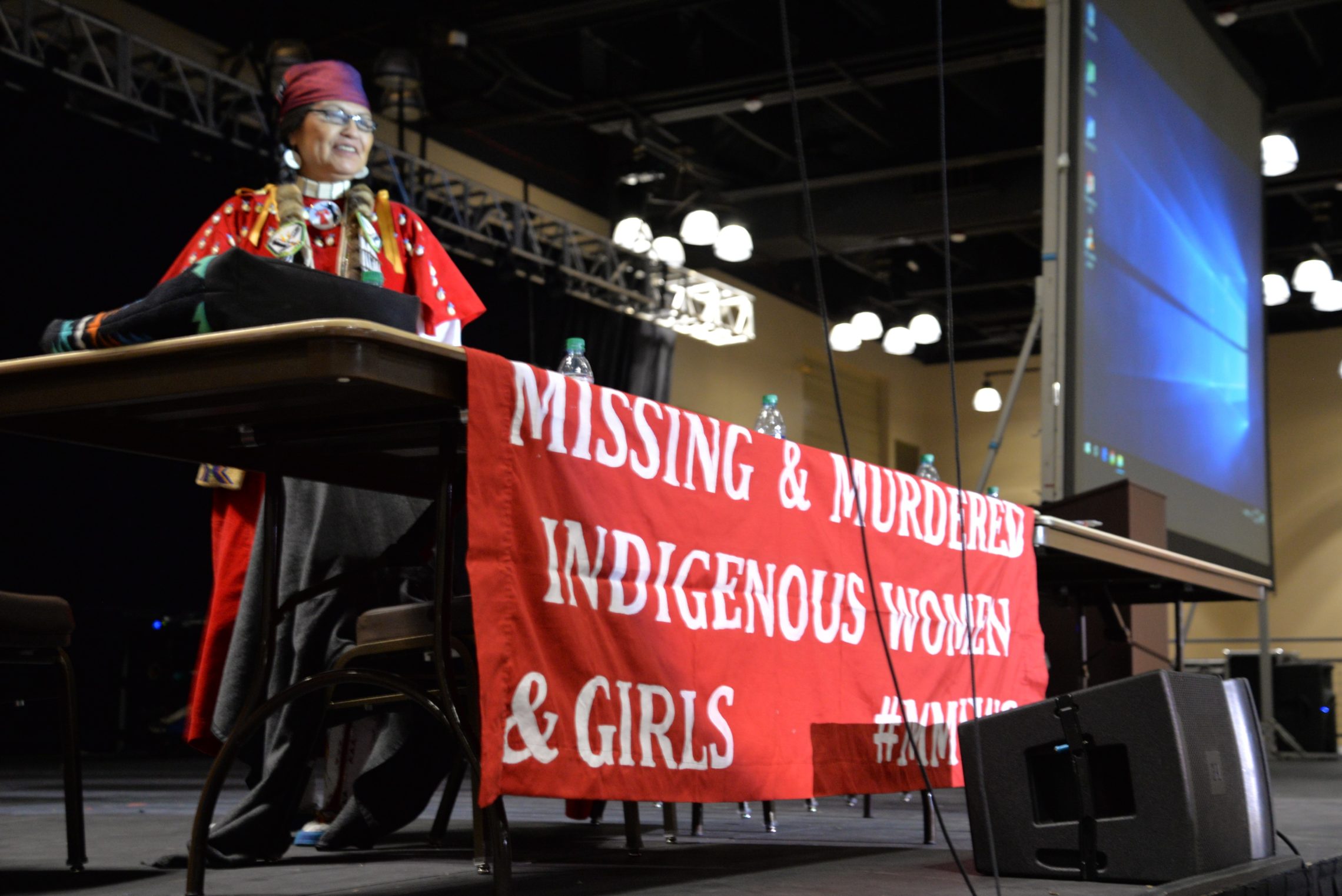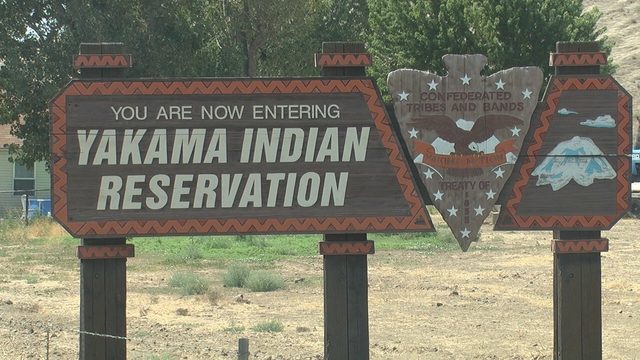
‘No Family Deserves To Have To Go Through This’: Missing And Murdered On The Yakama Nation
Listen
On Dec. 26, 2017, Myrna Cloud’s 23-year-old cousin went missing on the reservation of the Yakama Nation in Central Washington.
(Out of respect for traditional Yakama mourning practices, Myrna’s cousin’s full name won’t be used but will be referred to as D. Lloyd.)
D. Lloyd’s body was found in a rural part of the reservation four days after her disappearance. Initially the Yakima County coroner ruled it an accidental death. It was later reclassified a homicide. Because of the way jurisdiction works on the Yakama Nation, the case was referred to the FBI.
Numbers of missing and murdered Indigenous women are hard to quantify. Different agencies track different numbers, and there’s no central database as of yet. According to data from the Sovereign Bodies Institute, an Indigenous led non-profit, 16 women and girls are currently reported missing or killed in Yakima County. A project by the Yakima Herald-Republic documenting the deaths of women on the Yakama Nation reservation identifies 23 women who have gone missing, been murdered, or died under suspicious circumstance dating back to 1986.
D. Lloyd’s murder is still under investigation.
Myrna Cloud shared her family’s experience with reporter Esmy Jimenez:
I never would’ve ever thought my family would be involved in this epidemic.
We were aware of it but we never would of thought it was gonna hit this close to home.
She is my first cousin. Her mom and my mom are sisters. We grew up together. Her moms always been a second mom for me.
Christmas night is when she decided she was gonna go hang out with her friends. That’s the last anybody heard from her.
She got dropped off in Harrah, Washington. We don’t know what happened after that.
The next day is when everybody start asking around trying to figure it out.
We went in to tribal and it was the same initial reaction, it wasn’t that big of a deal and I already knew that’s how it was going to happen. I knew they weren’t going to jump up and say like ‘oh we need to go find her.’ So nothing was really done.
I was out in the middle of winter in December, trying to find my little cousin, and that’s because I knew law enforcement wasn’t doing their job and they weren’t going to do their job.
They said they found her in a ditch out in Harrah.
They didn’t even declare a homicide until just a couple months ago. The jurisdiction when it’s a suspicious death, it goes to FBI, its out of tribals hands.
There’s at least 32* unsolved cases on the Yakama reservation, we certainly didn’t want to be in that category as well.
When he have to do the cops jobs, that’s where a lot of anger comes from too.
In our traditional ways, we refer to them as átway, which means they passed on, now they’re our elders because they’re up in heaven. As respect for the family and the mourning process, we don’t look at their pictures for a year and we don’t say their names, we just refer to them as átway.
When we don’t hear nothing that’s when we feel hopeless, you know start to feel more down instead of thinking something’s being done and it feels like when they weren’t giving calls back, it felt like they didn’t care.
Even though it’s been over a year, everybody’s really struggling with this. I don’t think it’s gonna start to really heal until we see some justice for her.
She’s always missed. She did not deserve this, no woman deserves this. No family deserves to have to go through this.
*NOTE: The Yakima Herald-Republic project notes an FBI investigation estimated as many as 32 cases of Missing and Murdered Indigenous Women on the Yakama Nation reservation, dating back to 1980.
Greg Mills produced the audio for this story. The flute music at the end of the audio story is by Myrna Cloud’s uncle, Foster Kona Kalama. The song is called “For The Sacred Winds.”
Copyright 2019 Northwest Public Broadcasting
Related Stories:
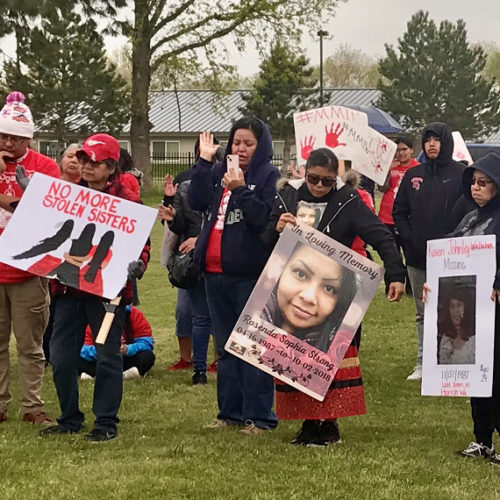
Cantwell dice que Washington necesita más recursos para enfrentar crisis de MMIP
En una conferencia de prensa realizada en el Seattle Indian Health Board, dirigentes tribales, familiares de personas desaparecidas y la senadora estadounidense Maria Cantwell (D-Washington) afirmaron que se necesitan más recursos federales para abordar la crisis de las personas indígenas desaparecidas y asesinadas en el estado de Washington. La conferencia tuvo lugar el 5 de mayo, Día Nacional de Concientización sobre Personas Indígenas Desaparecidas o Asesinadas (MMIP).
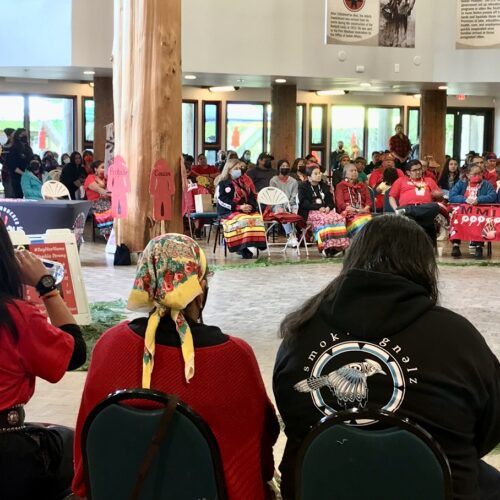
Cantwell says Washington needs more resources to address MMIP crisis
Tribal leaders, family members, and Democrat U.S. Senator Maria Cantwell from Washington asked President Biden for more federal resources to address the missing and murdered indigenous women and people crisis in Washington.
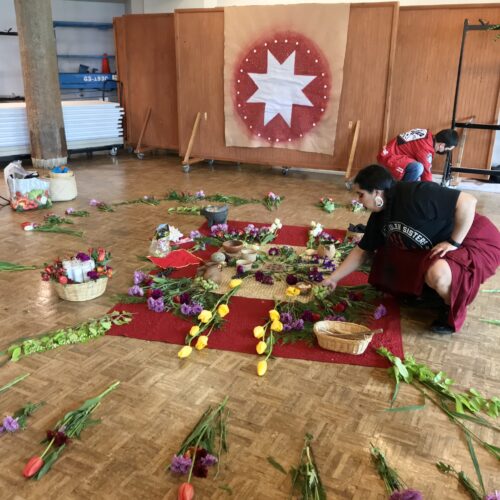
MMIWP: Comunidades indígenas siguen alzando sus voces en la búsqueda de sus seres queridos
Al comenzar el mes nacional de concientización sobre los casos de mujeres y personas indígenas desaparecidas y asesinadas (MMIW/P), las familias siguen llamando la atención sobre las barreras y los retos que experimentan al abordar la crisis en Washington.

